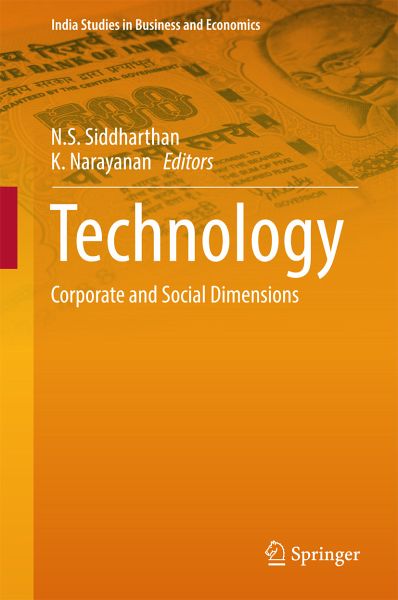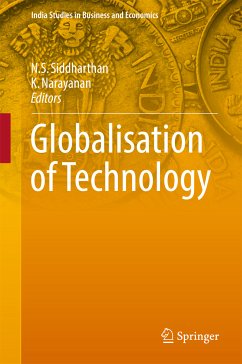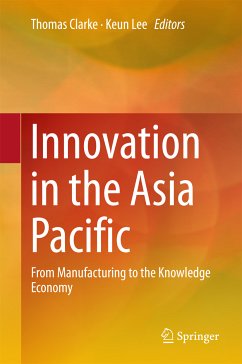
Technology (eBook, PDF)
Corporate and Social Dimensions
Redaktion: Siddharthan, N. S.; Narayanan, K.
Versandkostenfrei!
Sofort per Download lieferbar
72,95 €
inkl. MwSt.
Weitere Ausgaben:

PAYBACK Punkte
36 °P sammeln!
This volume deals with the role and impact of technology on the economy and society. The papers on corporate dimensions address the impact of patents, determinants of innovative activities, differential behaviour of multinationals, industrial groups and other firms with regard to innovations and technology. In contrast, the papers on social dimensions chiefly deal with the role of technology in reducing inequality. The majority of the papers employ econometric techniques and other statistical methods, and many are based on primary data. The studies emphasise the importance of innovations (espe...
This volume deals with the role and impact of technology on the economy and society. The papers on corporate dimensions address the impact of patents, determinants of innovative activities, differential behaviour of multinationals, industrial groups and other firms with regard to innovations and technology. In contrast, the papers on social dimensions chiefly deal with the role of technology in reducing inequality. The majority of the papers employ econometric techniques and other statistical methods, and many are based on primary data.
The studies emphasise the importance of innovations (especially patents) and human capital in influencing productivity across Indian states, the significance of patenting in determining the efficiency of firms, the role of business groups in promoting innovations, differences in the technological characteristics of multinational and domestic firms, and how mergers and acquisitions can promote R&D.
The studies show that those Indian states that have invested in human capital and technology experienced higher labour productivity. Further, the studies establish a positive correlation between R&D spending and employment. Lastly, they demonstrate that the adoption of agriculture-related technologies can have a significant impact on rural poverty and consumption expenditures.
Dieser Download kann aus rechtlichen Gründen nur mit Rechnungsadresse in A, B, BG, CY, CZ, D, DK, EW, E, FIN, F, GR, HR, H, IRL, I, LT, L, LR, M, NL, PL, P, R, S, SLO, SK ausgeliefert werden.












